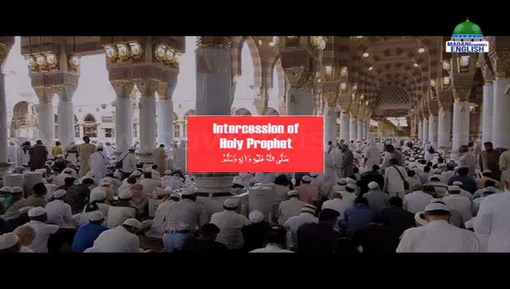The Prophet’s Sublimity
The Prophet’s Sublimity
12 Rabi ul Awwal, also known as Mawlid al-Nabi, marks the birth of the Holy Prophet Muhammad صَلَّى الـلّٰـهُ عَلَيْهِ وَاٰلِهٖ وَسَلَّم, a day of immense significance for Muslims around the globe. This sacred day provides an opportunity to reflect on the life, teachings, and legacy of the Prophet صَلَّى الـلّٰـهُ عَلَيْهِ وَاٰلِهٖ وَسَلَّم, who is regarded as the final messenger of Allah Almighty in Islam. This blog delves into the historical context, the life of the Prophet صَلَّى الـلّٰـهُ عَلَيْهِ وَاٰلِهٖ وَسَلَّم, the spiritual and communal importance of jashn e eid milad un nabi, and how it is celebrated across different cultures.
On the 12th of Rabi ul Awwal at the time of dawn, the Holy Prophet صَلَّى الـلّٰـهُ عَلَيْهِ وَاٰلِهٖ وَسَلَّم was born. He arrived as the light and mercy for distressed and sorrowful humanity, transforming the dark night of miseries, hardships, trials, and tribulations into a radiant and comforting morning of joy.
Immediately upon the birth of the Beloved Rasool صَلَّى الـلّٰـهُ عَلَيْهِ وَاٰلِهٖ وَسَلَّم, the dark clouds of oppression and disbelief dissipated; the palace of Kisra, owned by the Iranian king, was struck by an earthquake that destroyed its fourteen spikes (i.e., embedded for adding beauty); the non-stop burning flames, which had endured for a thousand years in Iran, were distinguished; the river 'Sava' ran dry; idols tumbled headlong; and the blessed Kabah began to sway.
Born into the noble Quraish tribe, Muhammad's صَلَّى الـلّٰـهُ عَلَيْهِ وَاٰلِهٖ وَسَلَّم father, Hazrat Abdullah, passed away before his birth, and his mother, passed away when he was just six years old.
He was then raised by his grandfather, Hazrat Abdul Muttalib, and later by his uncle. Despite the challenges of his early life, Muhammad's صَلَّى الـلّٰـهُ عَلَيْهِ وَاٰلِهٖ وَسَلَّم character, integrity, and honesty earned him the title of Al-Amin (the Trustworthy).
Prophet Muhammad's صَلَّى الـلّٰـهُ عَلَيْهِ وَاٰلِهٖ وَسَلَّم life is a Mercy to mankind and guidance for all. From his early years as a shepherd to his prophethood at the age of 40, his life is filled with lessons of patience, perseverance, and devotion to Allah Almighty.
In his early days Muhammad صَلَّى الـلّٰـهُ عَلَيْهِ وَاٰلِهٖ وَسَلَّم worked as a shepherd and later as a merchant. His marriage to Khadijah رَضِیَ اللہُ تَعَالٰی عَنْھا, a wealthy widow, marked a significant phase in his life, providing him with support and stability.
Then, at the age of 40, while in the Cave of Hira, Muhammad صَلَّى الـلّٰـهُ عَلَيْهِ وَاٰلِهٖ وَسَلَّم received his first revelation from Allah Almighty through Hazrat Jibreel عَلَیهِالسَّلام. This event marked the beginning of his prophethood as the Last Messenger of Allah and the revelation of the Quran over 23 years.
Rabi, which signifies springtime, marks the period between the hot and cold seasons. The initial phase of spring was termed 'Rabi-ul-Awwal' by the Arabs. It was during this time that flowers and mushrooms would flourish. The season in which fruits would grow was called ‘Rabi-ul-Aakhir’.
When the months were designated, inspired by the names of these two seasons, the two months following Safar were named Rabi-ul-Awwal and Rabi-ul-Aakhir respectively.
O devotees of the Prophet صَلَّى الـلّٰـهُ عَلَيْهِ وَاٰلِهٖ وَسَلَّم, the gatherings of Eid Milad Un Nabi are from amongst the greatest of the preferable and virtuous acts. (Al-Haqq-ul-Mubeen, p. 100) Sayyiduna ‘Allamah Abdul Rahman Bin Jawzi رحْمَةُ الـلّٰـهِ عَلَيْه - states: ‘The disgracing of Satan and the strengthening of the believers lies in celebrating the Mawlid.’ (Subul-ul-Huda Wal Rashad, vol. 1, p. 363)
Sayyiduna Imam Jalal-ud-Deen Abdul Rahman Suyuti رحْمَةُ الـلّٰـهِ عَلَيْه - states: ‘The one celebrating the Prophet’s صَلَّى الـلّٰـهُ عَلَيْهِ وَاٰلِهٖ وَسَلَّم Eid e Milad earns reward, for this entails respecting the Prophet صَلَّى الـلّٰـهُ عَلَيْهِ وَاٰلِهٖ وَسَلَّم and expressing joy upon his birth. To show our gratitude upon his birth, it is Mustahab [i.e. preferable] for us to conduct gatherings, feed others and carry out other such acts of goodness. In summary, illustrate joy and felicity. (Al-Hawi lil Fatawa, vol. 1, pp. 222-230)
Rabi ul Awal is the third month of the Islamic year. This month is a collection of virtues and honors, as it is the month in which the messenger of Allah Almighty, a mercy to the universe, the prophet صَلَّى الـلّٰـهُ عَلَيْهِ وَاٰلِهٖ وَسَلَّم possessing numerous commendable attributes, the Seal of Prophethood صَلَّى الـلّٰـهُ عَلَيْهِ وَاٰلِهٖ وَسَلَّم, arrived into this world. Hence, this month garnered all these virtues and honors due to the birth of the Holy Prophet صَلَّى الـلّٰـهُ عَلَيْهِ وَاٰلِهٖ وَسَلَّم.
Describing the importance of Rabi ul Awal, Sayyiduna Imam Zakariyya Bin Muhammad Bin Mahmood Quzwayni رحْمَةُ الـلّٰـهِ عَلَيْه states: ‘This is the month in which Allah Almighty has opened the doors of virtues and honours upon the people of the world for the sake of His Final Prophet’s صَلَّى الـلّٰـهُ عَلَيْهِ وَاٰلِهٖ وَسَلَّم blessed being. It was on the 12th of Rabi ul Awal that the Messenger of Allah صَلَّى الـلّٰـهُ عَلَيْهِ وَاٰلِهٖ وَسَلَّم was born.’ (‘Ajaaib-ulMakhluqat, p. 68)
The importance of Rabi ul Awal cannot be overstated. Had the Holy Prophet صَلَّى الـلّٰـهُ عَلَيْهِ وَاٰلِهٖ وَسَلَّم not graced this world, every Eid would lose its true essence, and no night would hold the same spiritual significance as Baraat (Salvation). In reality, all the joy and liveliness in the world is attributed to the very presence of the Holy Prophet صَلَّى الـلّٰـهُ عَلَيْهِ وَاٰلِهٖ وَسَلَّم. The 12th day of this sacred month holds immense virtues and greatness. This date is the Eid of Eids for the devotees of the Prophet صَلَّى الـلّٰـهُ عَلَيْهِ وَاٰلِهٖ وَسَلَّم. (Lataaif-ul-Ma’arif, p. 104; Mawahib-ul-Ladunniyyah, vol. 1, p. 75)
12 Rabi ul Awal is celebrated as Jashne eid milad un nabi around the world with great fervor and devotion by Muslims. The celebrations, though varied, share a common theme of reverence and love for the Prophet صَلَّى الـلّٰـهُ عَلَيْهِ وَاٰلِهٖ وَسَلَّم.
The love for the Prophet صَلَّى الـلّٰـهُ عَلَيْهِ وَاٰلِهٖ وَسَلَّم forms the foundation of belief, and an indicator of this love is to abundantly remember one's beloved. A narration affirms, ‘Whoever loves someone, he makes mention of him in abundance.’ (Jami’-us-Sagheer, p. 507, Hadith 8312)
In general, we should praise the Holy Prophet صَلَّى الـلّٰـهُ عَلَيْهِ وَاٰلِهٖ وَسَلَّم and manifest our affection for him through our words and deeds throughout the entire year. However, especially during the month of Rabi ul Awwal, in gratitude for such a remarkable blessing from Allah Almighty, we should frequently invoke the mention of the Holy Prophet صَلَّى الـلّٰـهُ عَلَيْهِ وَاٰلِهٖ وَسَلَّم.
This remembrance can take various forms, such as reciting Salat upon the Prophet صَلَّى الـلّٰـهُ عَلَيْهِ وَاٰلِهٖ وَسَلَّم, reciting Nat, discussing his greatness, conducting a Mawlid an Nabi gathering (in accordance with Shariah while being considerate of the rights of local residents, passers-by, and the rights of people in general), participating in such gatherings, and more.
Observe a fast on the 12th of Rabi ul Awwal, for fasting on the day of the Prophet's صَلَّى الـلّٰـهُ عَلَيْهِ وَاٰلِهٖ وَسَلَّم birth is an expression of gratitude for Allah Almighty's blessing, and there exists abundant reward for it. The Prophet صَلَّى الـلّٰـهُ عَلَيْهِ وَاٰلِهٖ وَسَلَّم himself used to fast on every Monday and celebrated the day of his birth.
Those who celebrate the Mawlid an Nabi receive countless religious and worldly blessings from Allah Almighty. Sayyiduna Imam Ibn al-Jawzi رحْمَةُ الـلّٰـهِ عَلَيْه - says: ‘The one expressing joy and happiness upon the Mawlid will find this to be a barrier between [him and] Hell. Whoever spends a single dirham out of happiness for the Mawlid will receive the Prophet’s intercession, and Allah Almighty will give him 10 dirhams in return for one. O Ummah of the Prophet, glad tidings unto you!
The one who celebrates the Mawlid of the Prophet will reap blessings, respect, goodness and honour. He will enter Paradise whilst wearing a pearled turban and green attire.’ (Majmu’ Lateef-ul-Unsi, p. 281)
Sayyiduna Imam Ahmad Bin Muhammad Qastalani رحْمَةُ الـلّٰـهِ عَلَيْه - states: ‘From the oft-observed benefits of conducting a Mawlid gathering during Rabi’-ul-Awwal is that, that particular year remains one of safety and wellbeing. May Allah Almighty send mercy upon the one who makes the nights of Rabi’-ul-Awwal into Eid.’ (Al-Mawahib-ul-Ladunniyyah, vol. 1, p. 78).
Sayyiduna Shaykh Abdul Haq Muhaddis Dehlvi رحْمَةُ الـلّٰـهِ عَلَيْه stated that, ‘Indeed, the blessed night of the birth of the Holy Prophet صَلَّى الـلّٰـهُ عَلَيْهِ وَاٰلِهٖ وَسَلَّم is Afzal [superior] to even Shab-e-Qadr, mainly because this is the night in which the Holy Prophet صَلَّى الـلّٰـهُ عَلَيْهِ وَاٰلِهٖ وَسَلَّم was born. So, the night that is honored by the advent of the Holy Prophet صَلَّى الـلّٰـهُ عَلَيْهِ وَاٰلِهٖ وَسَلَّم is more sacred than the night which is honored by the ‘descending of angels.’ (Ma Sabata bis-Sunnah, pp. 100)
Mawlid history has deep roots in Islam. Shaykh Muhaqqiq Sayyiduna Shaykh Abdul Haq رحْمَةُ الـلّٰـهِ عَلَيْه, the Hadith scholar of Delhi, asserts: ‘Muslims have always held gatherings [of Milad un Nabi] in the month of the Prophet’s birth and offer plenty of charity in its nights.
Due to the blessings of this act, these people experience all sorts of blessings. From the specific experiences of a mawlid al nabi gathering is that its participants remain safe all year round, and there are glad tidings for the fulfilment of their needs and the accomplishment of their goals. May Allah Almighty shower many blessings upon the one who makes the day of Mawlid into Eid.’ (Ma Sabata bis-Sunnah, p. 102 selected)
12 Rabi ul Awwal is more than just a day of Milad Un Nabi celebration; it is a time for Muslims to reflect on the life and teachings of Prophet Muhammad صَلَّى الـلّٰـهُ عَلَيْهِ وَاٰلِهٖ وَسَلَّم. His legacy of compassion, justice, and mercy continues to guide and inspire. As we commemorate his birth, let us strive to embody his values and spread his message of peace and unity.

